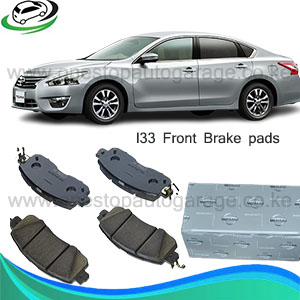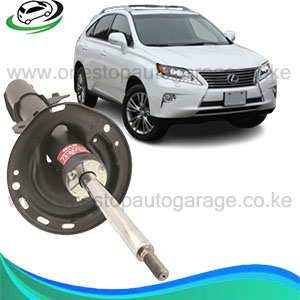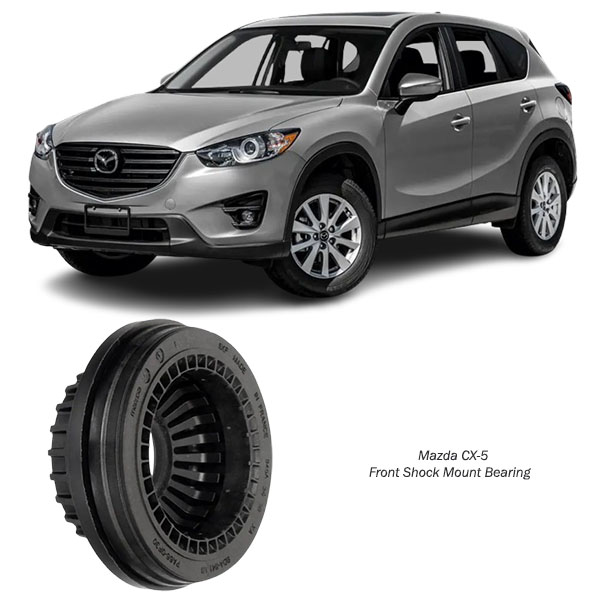-17%
Get Mazda CX-5 Front Shock Mount Bearing MZB-GJF in Kenya
The diesel fuel filter is a vital component of a vehicle’s fuel delivery system. Its primary role is to protect the engine by filtering impurities from the fuel before it reaches critical engine components. Diesel engines, known for their efficiency and durability, rely heavily on clean fuel to perform optimally. Any contamination can compromise their functionality, leading to reduced performance or severe engine damage.
This comprehensive guide explores diesel fuel filters, their function, benefits, types, maintenance, and why using a high-quality filter is essential for the long-term health of your vehicle.
What is a Diesel Fuel Filter?
A diesel fuel filter is a device that removes dirt, rust particles, water, and other impurities from the diesel fuel before it enters the fuel injection system. Diesel fuel is more prone to contamination compared to gasoline due to the way it is refined and stored. Therefore, an effective filter is critical for maintaining engine performance and preventing damage.
Functions of a Diesel Fuel Filter
A diesel fuel filter performs several critical roles in a vehicle’s operation:
1. Filtering Contaminants
- Diesel fuel can contain contaminants such as dirt, rust, and water. The fuel filter captures these impurities, preventing them from reaching sensitive components like fuel injectors and pumps.
2. Ensuring Optimal Combustion
- Clean fuel ensures the proper air-fuel mixture, which is crucial for efficient combustion. Contaminated fuel can disrupt this balance, leading to poor engine performance.
3. Protecting Engine Components
- By removing impurities, the fuel filter safeguards expensive engine parts, extending their lifespan and reducing maintenance costs.
4. Enhancing Fuel Efficiency
- Clean fuel flows more freely through the system, improving fuel efficiency and ensuring consistent engine performance.
5. Reducing Emissions
- Efficient filtration helps achieve cleaner combustion, reducing the emission of harmful pollutants into the environment.
Types of Diesel Fuel Filters
Diesel fuel filters come in various designs and configurations, depending on the vehicle’s requirements and operating conditions. The main types include:
1. Primary Fuel Filters
- Positioned between the fuel tank and the fuel pump, they filter larger particles and water before the fuel reaches the finer filter stage.
2. Secondary Fuel Filters
- Installed closer to the engine, they filter finer particles that may have bypassed the primary filter.
3. Inline Fuel Filters
- Placed directly in the fuel line, these filters are compact and suitable for smaller engines or specific applications.
4. Spin-On Fuel Filters
- Easy to replace, these filters come as a self-contained unit, including the filter media and housing.
5. Cartridge Fuel Filters
- Require replacing only the filter element, making them more environmentally friendly.
6. Water Separator Filters
- Specifically designed to remove water from diesel fuel, these filters are critical for protecting modern diesel engines.
Why Diesel Fuel Filters are Crucial for Modern Engines
Modern diesel engines are equipped with advanced technologies like high-pressure fuel injection systems, which are highly sensitive to fuel quality. Contaminated fuel can cause several issues:
- Clogged Fuel Injectors
- Particles in the fuel can clog injectors, leading to uneven fuel spray, reduced power, and poor fuel economy.
- Fuel Pump Damage
- Contaminants can damage the fuel pump, causing expensive repairs or replacements.
- Reduced Engine Performance
- Dirty fuel disrupts combustion, leading to rough idling, power loss, and reduced efficiency.
- Increased Emissions
- Poor combustion due to contaminated fuel results in higher emissions, failing regulatory standards.
Benefits of Using High-Quality Diesel Fuel Filters
Investing in a premium diesel fuel filter offers numerous advantages:
1. Superior Filtration Efficiency
- High-quality filters trap even the smallest contaminants, ensuring clean fuel reaches the engine.
2. Enhanced Durability
- Made with robust materials, premium filters withstand harsh operating conditions and have a longer service life.
3. Protection for Sensitive Components
- Protects critical parts like injectors and pumps, reducing wear and extending their lifespan.
4. Improved Engine Performance
- Clean fuel ensures smooth engine operation, optimal power delivery, and fuel efficiency.
5. Lower Maintenance Costs
- By preventing premature wear and damage, high-quality filters reduce the frequency and cost of repairs.
6. Compliance with Manufacturer Standards
- OEM or genuine filters are designed to meet specific vehicle requirements, ensuring compatibility and reliability.
Signs Your Diesel Fuel Filter Needs Replacement
A clogged or failing fuel filter can exhibit several warning signs:
- Difficulty Starting the Engine
- A blocked filter restricts fuel flow, making it hard to start the engine.
- Reduced Power
- The engine may struggle to accelerate or maintain speed due to insufficient fuel delivery.
- Engine Stalling
- Inconsistent fuel supply can cause the engine to stall, especially under heavy loads.
- Poor Fuel Economy
- Restricted fuel flow leads to inefficient combustion and increased fuel consumption.
- Check Engine Light
- Modern vehicles may detect fuel flow issues and illuminate the check engine light.
- Visible Contamination in the Filter
- Regular inspections may reveal dirt, water, or debris clogging the filter.
Maintenance Tips for Diesel Fuel Filters
Proper maintenance is essential to ensure the efficiency and longevity of your diesel fuel filter:
1. Replace at Recommended Intervals
- Follow the manufacturer’s guidelines for replacement, typically every 10,000 to 30,000 miles, depending on driving conditions.
2. Use Quality Diesel Fuel
- High-quality fuel with fewer impurities reduces the load on the filter and improves its lifespan.
3. Drain Water Regularly
- For filters with water separators, drain accumulated water periodically to prevent fuel contamination.
4. Inspect During Routine Maintenance
- Check the filter for visible signs of clogging or damage during oil changes or other routine services.
5. Choose Genuine Replacements
- Always use OEM or high-quality aftermarket filters to ensure compatibility and performance.
6. Monitor Performance
- Pay attention to signs of reduced engine performance, which may indicate a clogged filter.
Consequences of Using Poor-Quality Filters
Opting for substandard or incompatible fuel filters can have serious repercussions:
- Insufficient Filtration
- Allows contaminants to reach the engine, causing damage to injectors and pumps.
- Frequent Replacements
- Low-quality materials wear out quickly, increasing maintenance costs.
- Warranty Voidance
- Using non-genuine parts may void the vehicle’s warranty.
- Engine Damage
- Unfiltered fuel can lead to severe engine issues, requiring costly repairs.
- Inconsistent Fuel Flow
- Poor-quality filters may cause fuel starvation, leading to engine stalling or power loss.
Steps to Replace a Diesel Fuel Filter
Replacing a diesel fuel filter is a relatively straightforward process, though it’s often best handled by professionals. The steps include:
- Locate the Filter
- Identify the filter housing, typically near the fuel tank or engine.
- Depressurize the Fuel System
- Release pressure in the fuel line to prevent spills.
- Remove the Old Filter
- Disconnect the filter housing and carefully remove the filter.
- Install the New Filter
- Ensure the replacement filter is positioned correctly and securely fastened.
- Prime the Fuel System
- Eliminate air from the fuel line to ensure proper flow.
- Test the Engine
- Start the engine and check for leaks or irregularities in performance.
Conclusion
A diesel fuel filter is indispensable for maintaining engine performance, efficiency, and longevity. By ensuring clean fuel reaches the engine, it prevents costly repairs, enhances performance, and supports cleaner emissions. Regular maintenance and timely replacement with high-quality filters are essential to avoid the pitfalls of fuel contamination. Investing in a premium diesel fuel filter not only protects your vehicle but also ensures a smoother and more reliable driving experience.
Follow us on Facebook for more parts.





